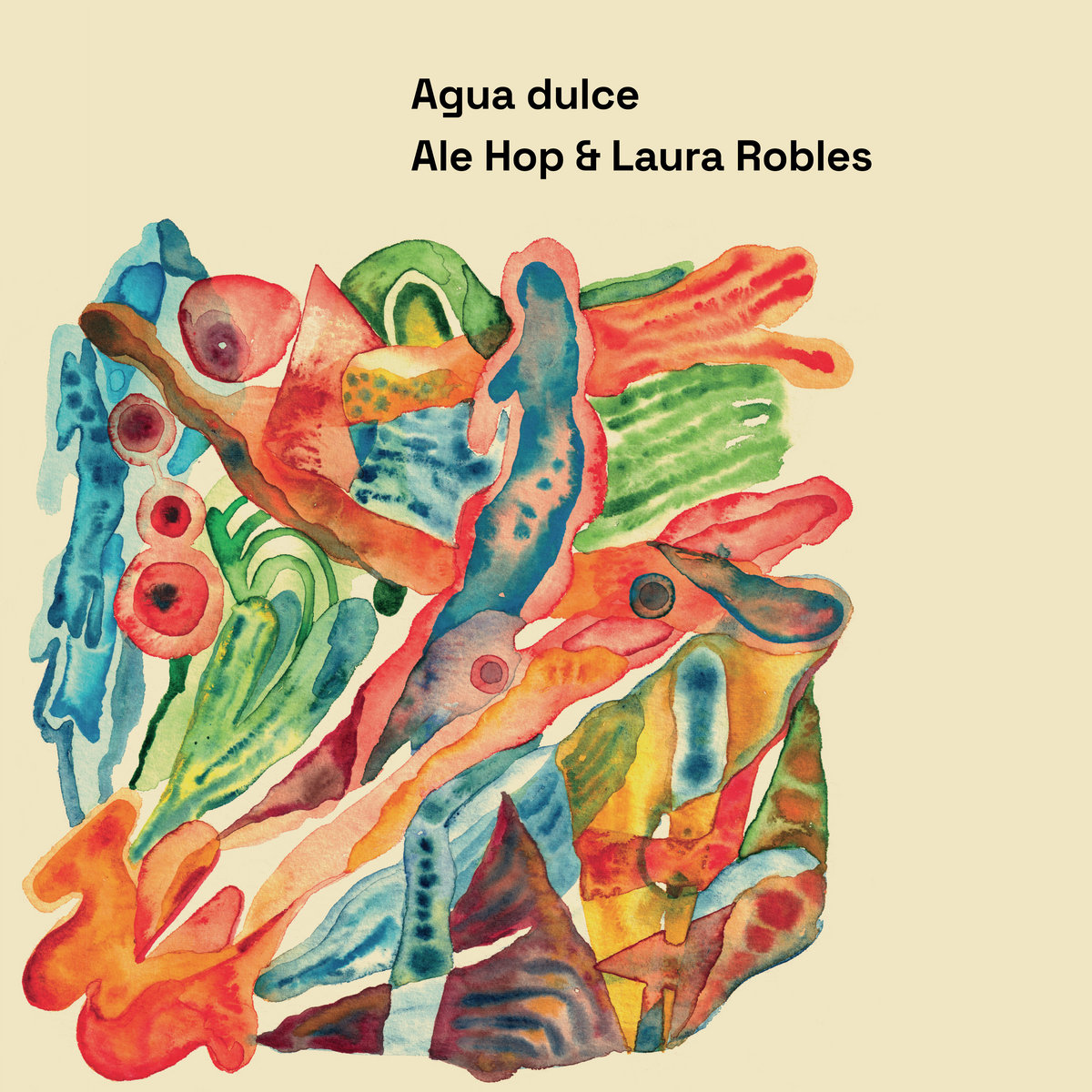 This is the debut collaboration between two Berlin-based Peruvian musicians and also marks my first exposure to percussionist Laura Robles. I am, however, reasonably familiar with the alien soundscapes of Ale Hop (Alejandra Cárdenas) and this union seems to have inspired some of her finest work to date. Notably, Robles is "reputed to be one of the best cajón players in Peru," which is useful context given how radically (yet lovingly) the pair deconstruct and reinvigorate the instrument ("a symbol of resistance, experimentation and transformation" in Peru). In more practical terms, that means that Cárdenas and Robles dramatically disrupt, distort, and repurpose traditional dance rhythms into a wild psychotropic mindfuck. In fact, it sometimes sounds like Robles recorded her parts alone as a freeform performance at an Ayahuasca ceremony or something, but the seemingly roving and divergent threads always come together in impressive fashion in the end. Amusingly, I would have thought that the enigmatically and erratically shifting rhythms of Agua dolce would be damn near impossible to dance to, yet these pieces apparently made quite a splash when the duo coupled with dancer/choreographer Liza Alpiźar Aguilar for the Heroines Of Sound festival. Whether or not that means that I would be a terrible choreographer is hard to say, however, as the finished album may have ultimately landed in far more lysergic territory due to Cárdenas' additional edits and production wizardry.
This is the debut collaboration between two Berlin-based Peruvian musicians and also marks my first exposure to percussionist Laura Robles. I am, however, reasonably familiar with the alien soundscapes of Ale Hop (Alejandra Cárdenas) and this union seems to have inspired some of her finest work to date. Notably, Robles is "reputed to be one of the best cajón players in Peru," which is useful context given how radically (yet lovingly) the pair deconstruct and reinvigorate the instrument ("a symbol of resistance, experimentation and transformation" in Peru). In more practical terms, that means that Cárdenas and Robles dramatically disrupt, distort, and repurpose traditional dance rhythms into a wild psychotropic mindfuck. In fact, it sometimes sounds like Robles recorded her parts alone as a freeform performance at an Ayahuasca ceremony or something, but the seemingly roving and divergent threads always come together in impressive fashion in the end. Amusingly, I would have thought that the enigmatically and erratically shifting rhythms of Agua dolce would be damn near impossible to dance to, yet these pieces apparently made quite a splash when the duo coupled with dancer/choreographer Liza Alpiźar Aguilar for the Heroines Of Sound festival. Whether or not that means that I would be a terrible choreographer is hard to say, however, as the finished album may have ultimately landed in far more lysergic territory due to Cárdenas' additional edits and production wizardry.
The album borrows its title from "the most popular beach in Lima," which is near where "both artists lived during their childhood, houses apart, without ever meeting one another." Improbably, they eventually met as expats on the other side of the world and happily found themselves to be kindred spirits tuned into the same outré wavelength. I suppose Robles is arguably the more conventional of the two despite playing Peruvian music in Germany on a self-built electric cajón, but that is only because Ale Hop often sounds like she is from a completely different planet or dimension altogether. The most impressive example of that otherworldliness comes at the midpoint of "Lamento," as the hissing, blatting electronics and sleepy Latin rhythms seem like they are suddenly interrupted by the appearance of ghost UFO that propels the proceedings into dazzling new heights of haunting, spacialized phantasmagoria. That said, the entire first half of the album is one mesmerizing psychotropic jungle freakout after another, as Cárdenas unleashes her inner tropical Lovecraft to conjure a host of squirming, gelatinous, seething, buzzing, and jabbering electronic sounds over Robles' clattering percussion workouts.
I am also quite fond of the more simmering and sensuous closer "Calato," but this whole album feels like a vivid extradimensional jungle nightmare taking place inside a pinball machine. The one caveat is that the improvisatory roots of these pieces occasionally mean that it takes a little while for all the pieces to fall into place, but expectantly waiting for that unpredictably organic convergence to hit only enhances my appreciation for the pair's spontaneous and freewheeling deep psych vision.
Read More

